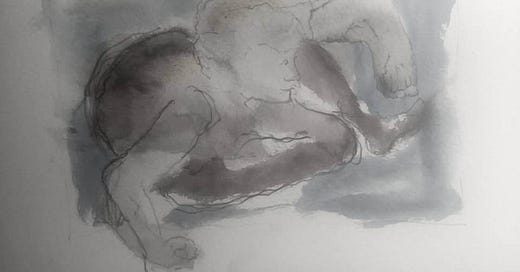The failure of teacher evaluation reform.
Dad never finished high school.
But he knew something about school reform.
Dad got a first hand education in fighting fascism by joining the Abraham Lincoln Brigade at the age of 17 and went to battle Franco’s army in Spain in 1936.
I bring this up because, although I think about Dad often, I was reminded the other day of something he would say when he got old and in a nursing home.
If we tried to tell him something he thought was stupid by using the argument that it was “better than nothing,” Dad would have none of it.
“You’re just pushing the pernicious theory of better than nothing,” he would grumble.
I think Dad’s life experiences taught him that better than nothing is a pernicious theory.
Wars have been fought and thousands have died for no more of a reason that it was better than doing nothing.
I think Dad’s pernicious theory is totally applicable to a recent study of the results of teacher evaluation reform.
They were the reforms that emerged during the Obama administration and when Arne Duncan was Secretary of Education.
The study’s results were recently reported on in Education Week. It was conducted by the Annenberg Institute for School Reform at Brown University.
One of the authors of the study summed it up. “There’s not a null effect in every place where teacher evaluation [reform] happened. ... [But] on average, [the effect on student achievement] is pretty close to zero.”
In other words, the reforms were no better than doing nothing.
The effect on student learning, even after all the disruption and millions of dollars wasted was “pretty close to zero.”
We predicted this outcome.
Recall that the Obama administration and Education Secretary Arne Duncan (who it is now rumored wants to run against Chicago’s Mayor Lori Lightfoot) pushed No Child Left Behind and Race to the Top as their main education reform policies.
Central to their agenda was a focus on teacher accountability.
They argued that if schools were failing, suggesting most were, it was because there were too many bad teachers getting a pass.
Duncan’s solution was to hold teachers responsible for how individual students performed on standardized test scores and make that part of the teacher’s evaluation.
It didn't even matter if the teacher never taught the subject that was being tested.
In Illinois Duncan’s reforms arrived in the form of Senate Bill 7.
During the days of Duncan’s Race to the Top, Illinois applied for a grant. To apply for a grant Arne Duncan required Illinois link teacher evaluation to individual student performance.
Pat Quinn – he was governor at the time – created a commission to write the application and legislation making Illinois compliant with the RTTT requirements.
The commission was chaired by the Illinois Education Association executive director, Audrey Soglin.
My union.
Jonah Edelman was head of Stand for Children at the time.
SFC was a phony corporate anti-union reform group.
Edelman and SFC looked at SB7 as a major victory over teachers.
Edelman said in a presentation to the Aspen Institute that the catalyst for getting SB7 passed was the IEA’s collaboration on Race to the Top.
Edelman says that the IEA and the IFT willing “gave away” in the first minutes of their negotiation what it took the entire struggle in Colorado to accomplish, where they eventually destroyed collective bargaining.
Edelman explained the union cave-in, led by the IEA, as “the union’s history of pragmatism,”
Soglin was praised by SFC as “very pragmatic.”
Edelman says in the video that when the “collaboration” was done that led to teacher evaluation reforms, he speculates that Soglin “was happy,” implying her position was always closer to their’s anyway.
He had expected the collaboration to fall apart over the Chicago strike issue.
SB7 not only contained the new teacher evaluation rules, it also required a 75% authorization vote by Chicago Teacher Union members in order to strike.
When the CTU did strike it was with 90% voting to authorize it.
Edelman says that he was pleasantly surprised when the IEA agreed to everything right away.
“We got to decide all the fine print,” gloated Edelman in the video.
The legislation was passed by the Illinois legislature and signed by Quinn.
PERA, the Performance Evaluation Reform Act, became a part of Illinois Senate Bill 7, which undermined tenure and seniority along with creating the non-reseach based link between teacher evaluation and individual student performance.
Audrey Soglin is still the executive director of the Illinois Education Association.
Her Performance Evaluation Reform Act is still on the books.
It was so pernicious.




